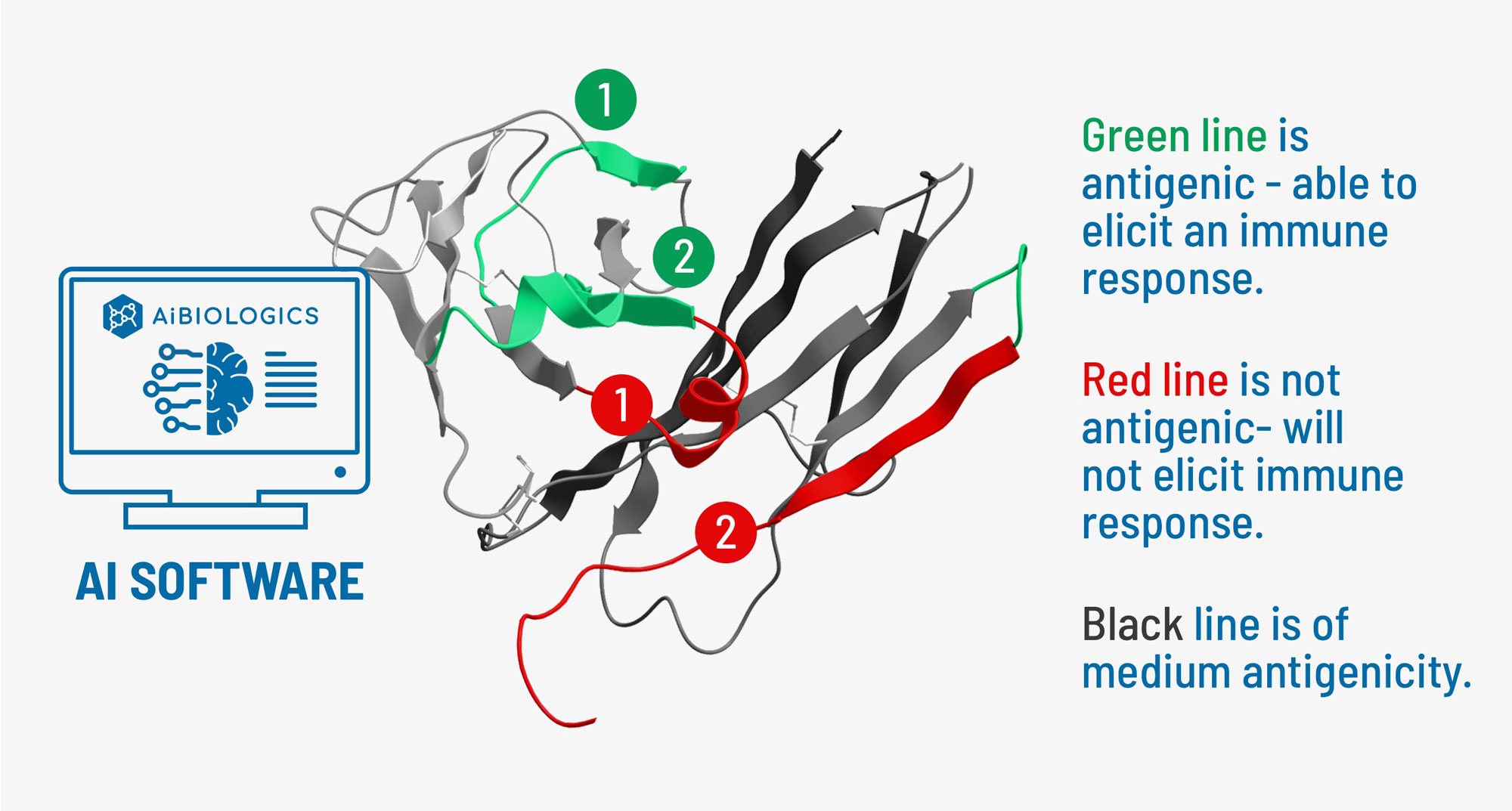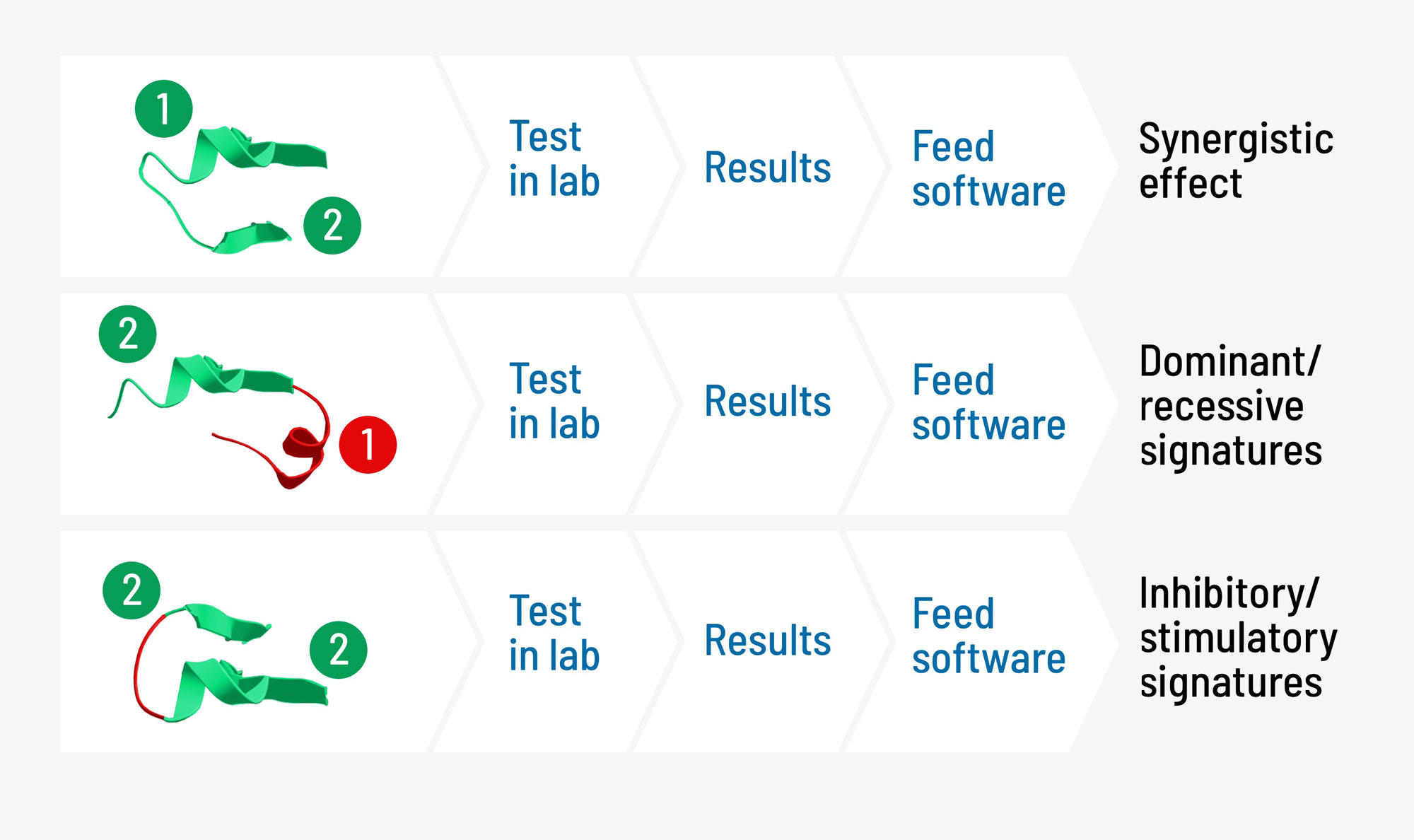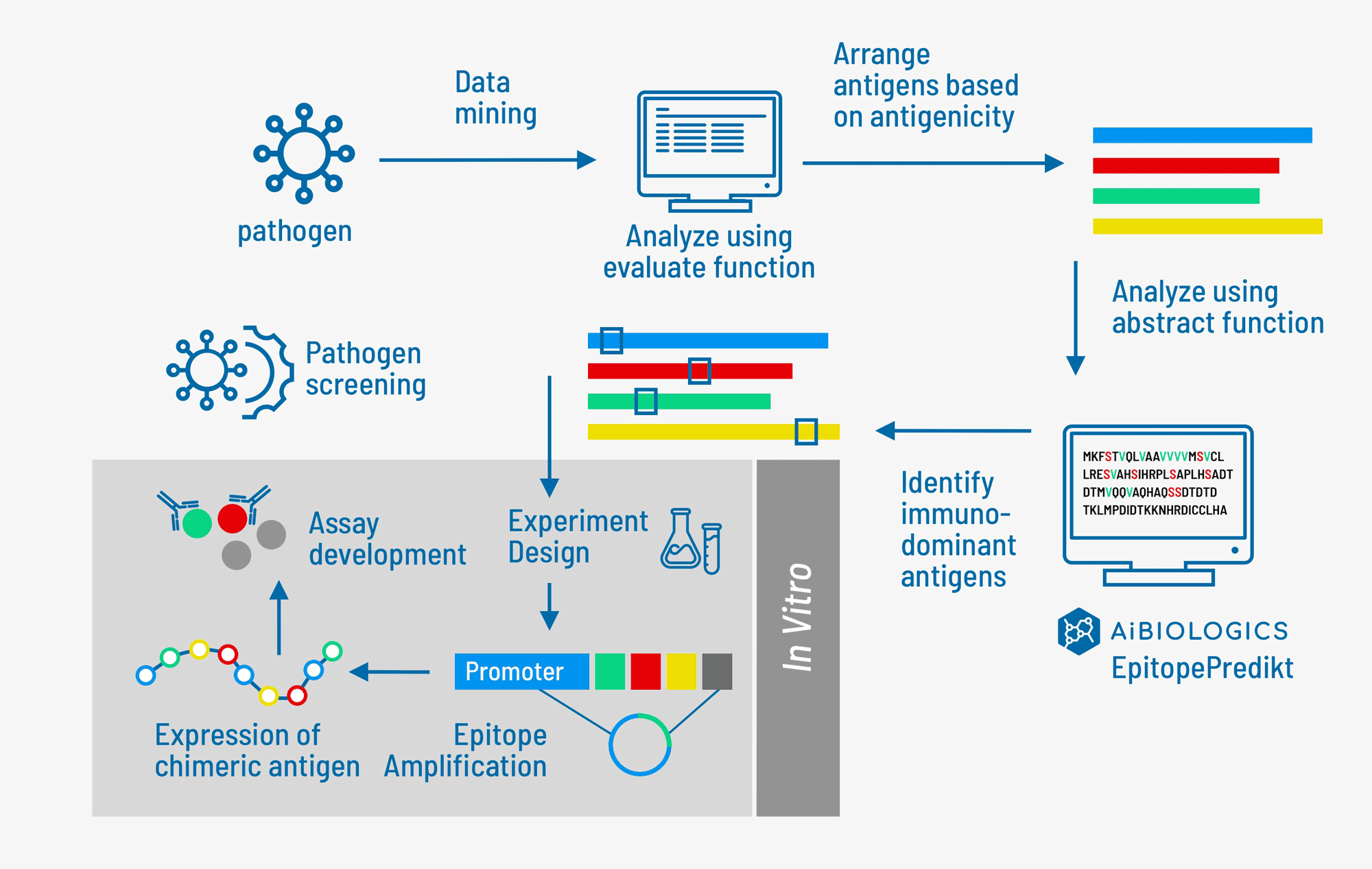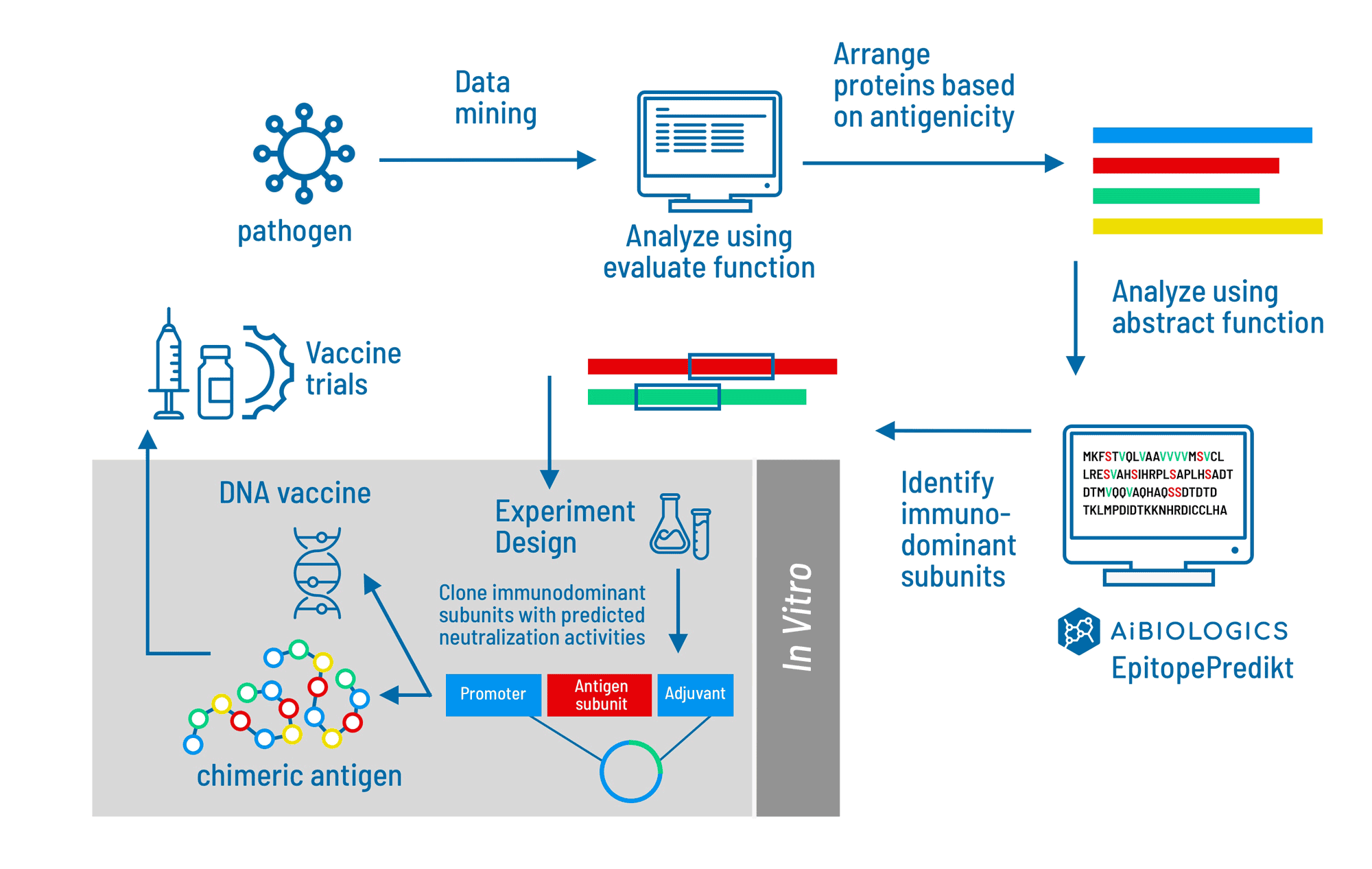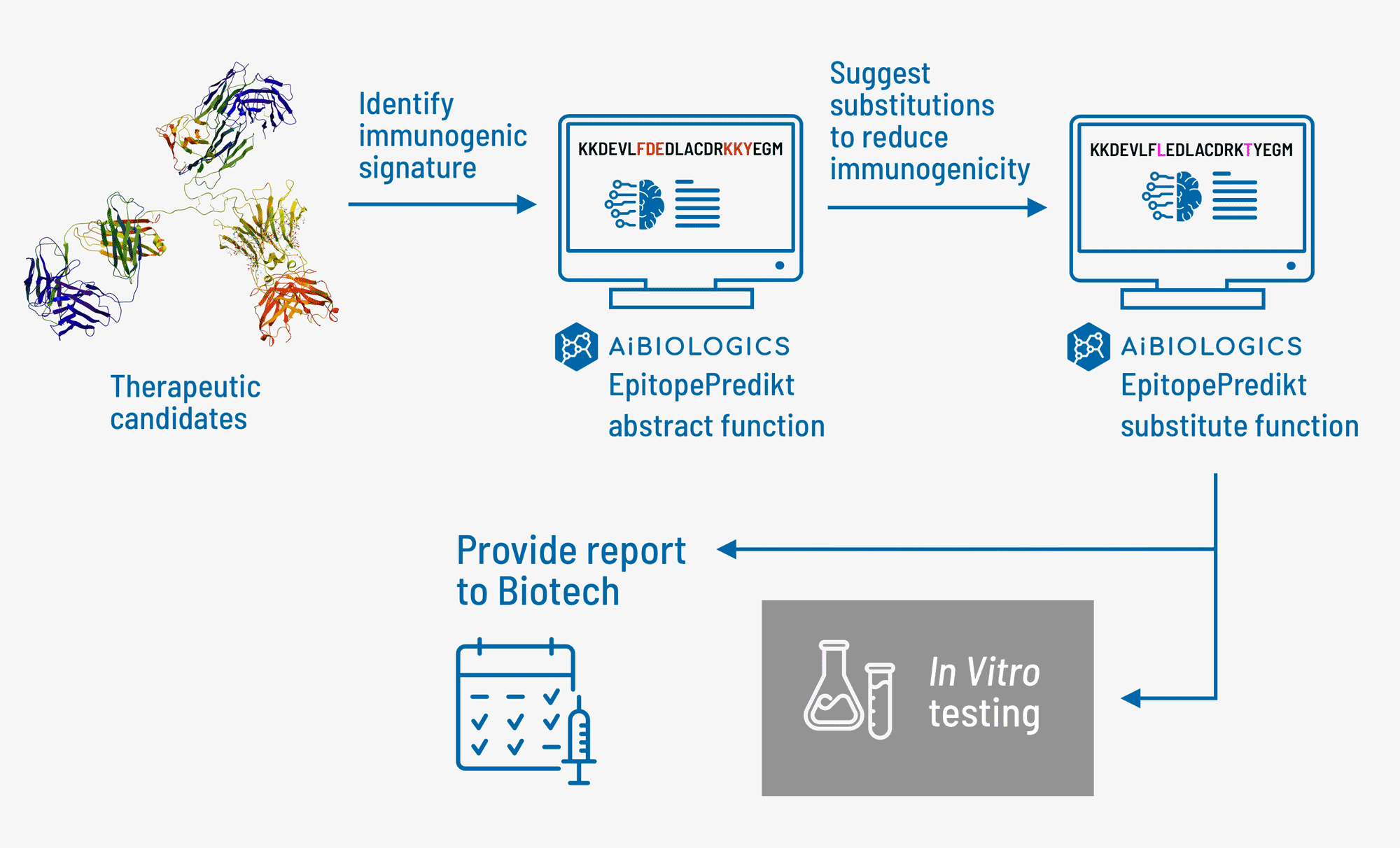EpitopePredikt: Advancing antibody, vaccine and diagnostic discovery through the power of AI
Immunodominance
Immunodominance is an immunological phenomenon in which immune responses are mounted against only a few antigenic determinants (epitopes).
Immunodominant epitopes (short pieces of a larger molecule) dominate the immune response. Each epitope can elicit overlapping and/or different antibody responses (IgM, IgA, IgE, IgG, IgD)
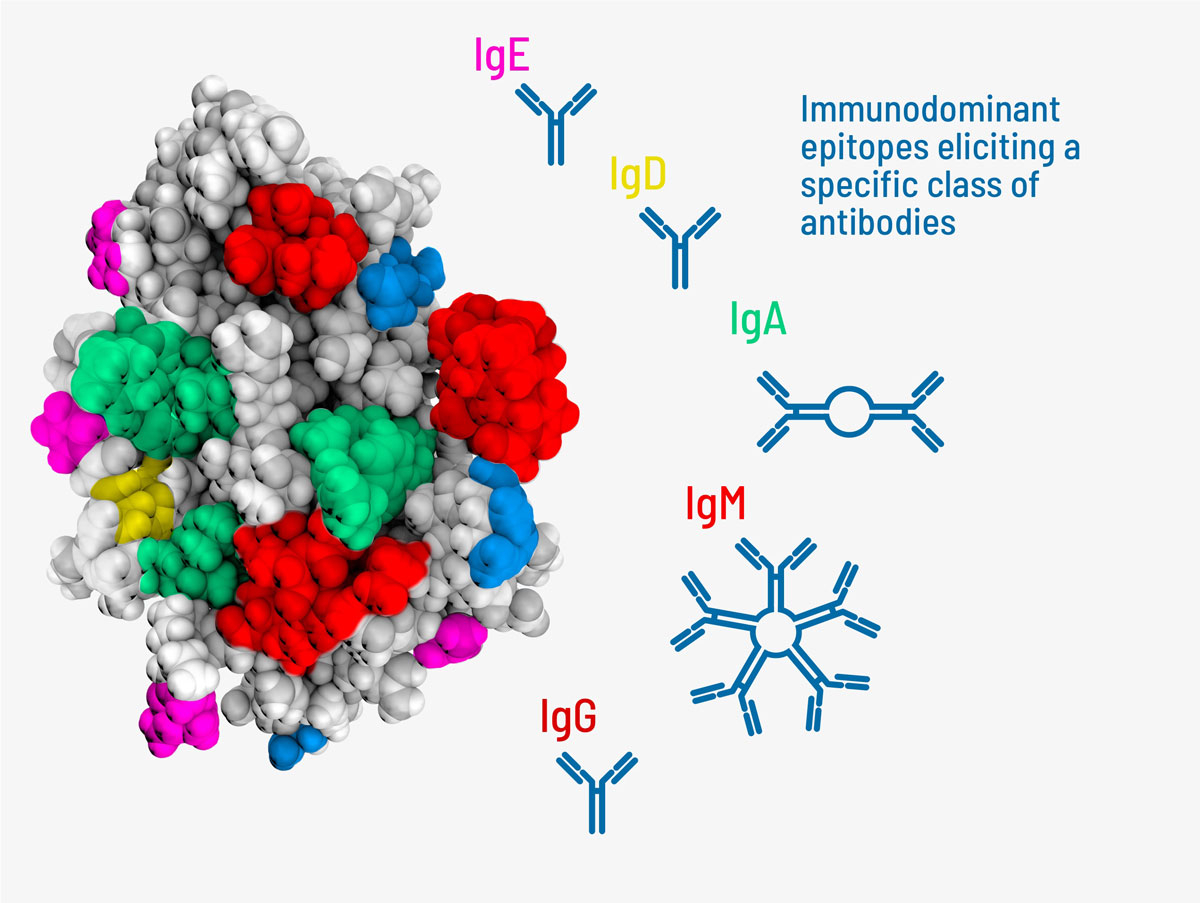
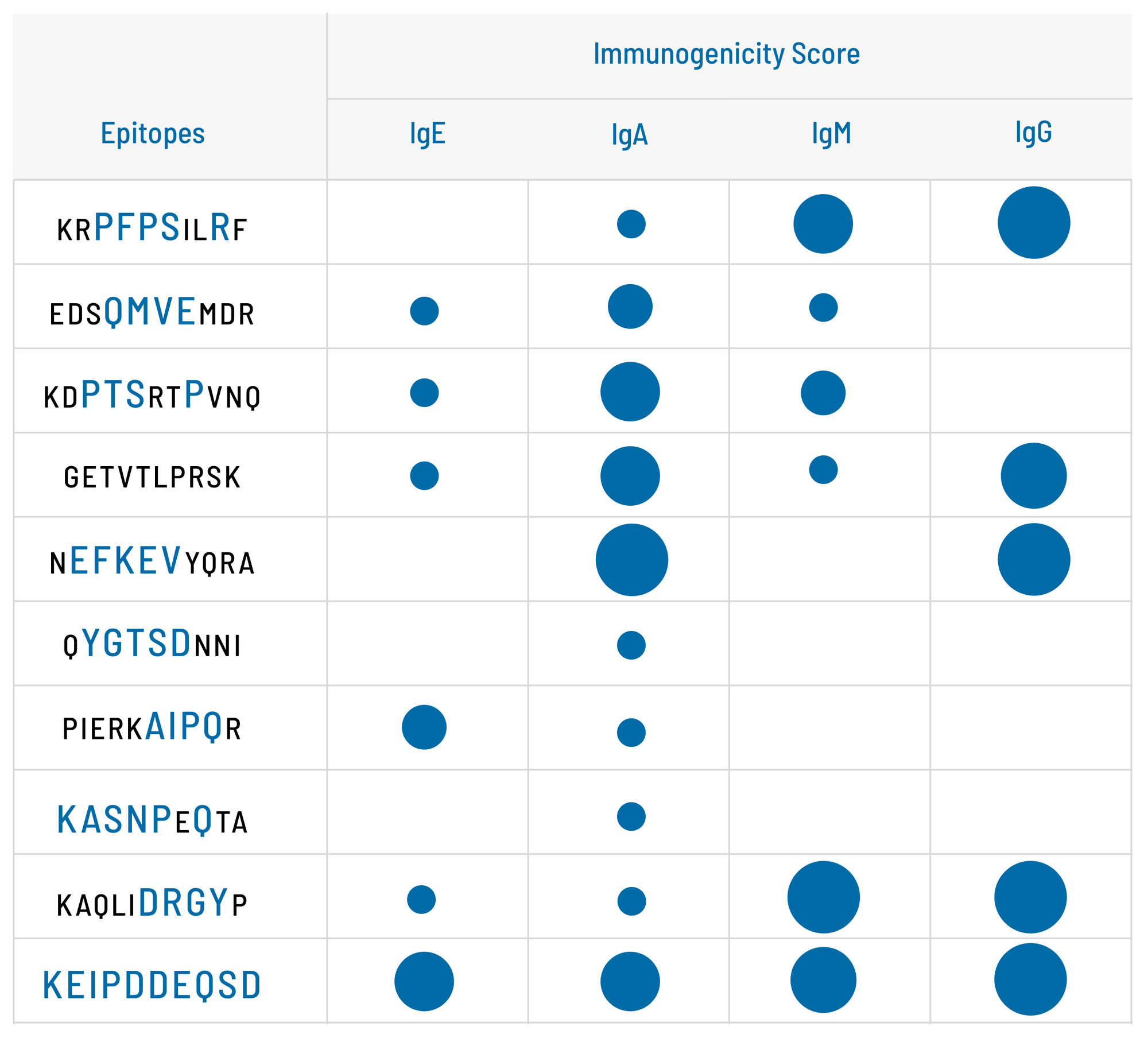
AI software: Extremital data
Employing supervised and unsupervised learning using experimental data we have generated AI software to identify immunodominant and subdominant epitopes and respective antibody classes (IgM, IgA, IgG, IgE)
EpitopePredikt – Learning Capabilities
EpitopePredikt is capable of learning to analyse protein sequences, identifying dominant immunogenic sequences and generating novel sequences with increased immunogenicity through use of immune inspired and genetic algorithms. In addition EpitopePredikt can identify the class of antibody most likely to be produced in response to a particular antigen.
AI software applications
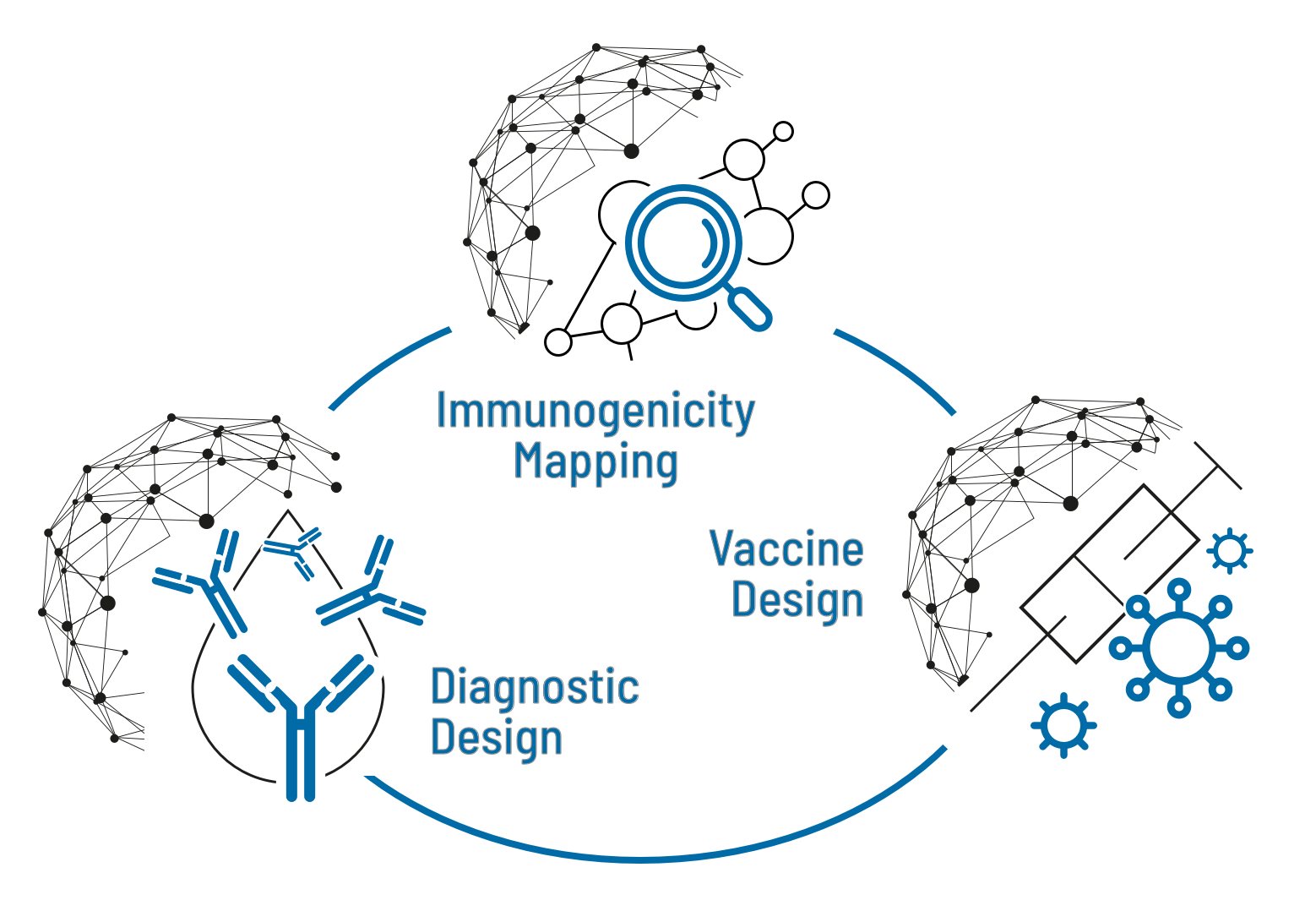
EpitopePredikt:
In silico tool to identify antigenic determinants for serological assays
EpitopePredikt can identify immunodominant epitopes which are vital for the design and and development of immuno-diagnostic reagents. The AiBIOLOGICS diagnostic discovery platform provides higher levels of specificity and sensitivity.
EpitopePredikt:
In silico tool to predict antigenic determinants and subunit vaccine design.
EpitopePredikt can identify immunodominant antigen subunits which are very useful for subunit vaccine design. EpitopePredikt’s unique algorithms can target vaccines to a variety of species and individual antibody subtypes and classes.
EpitopePredikt:
In silico immunogenicity mapping
EpitopePredikt screens for immunogenicity and employs a proprietary scale that compares peptides from archival dataset.
Depending on the therapeutic context, biologics have proven to be surprisingly immunogenic. EpitopePredikt identifies the potential immunogenic signatures of therapeutic proteins and can suggest substitutions to greatly reduce antigenicity.
In silico immunogenicity screening for drug candidates will identify the best lead candidate to carry forward, thus reducing the risk of failure due to immunogenicity.
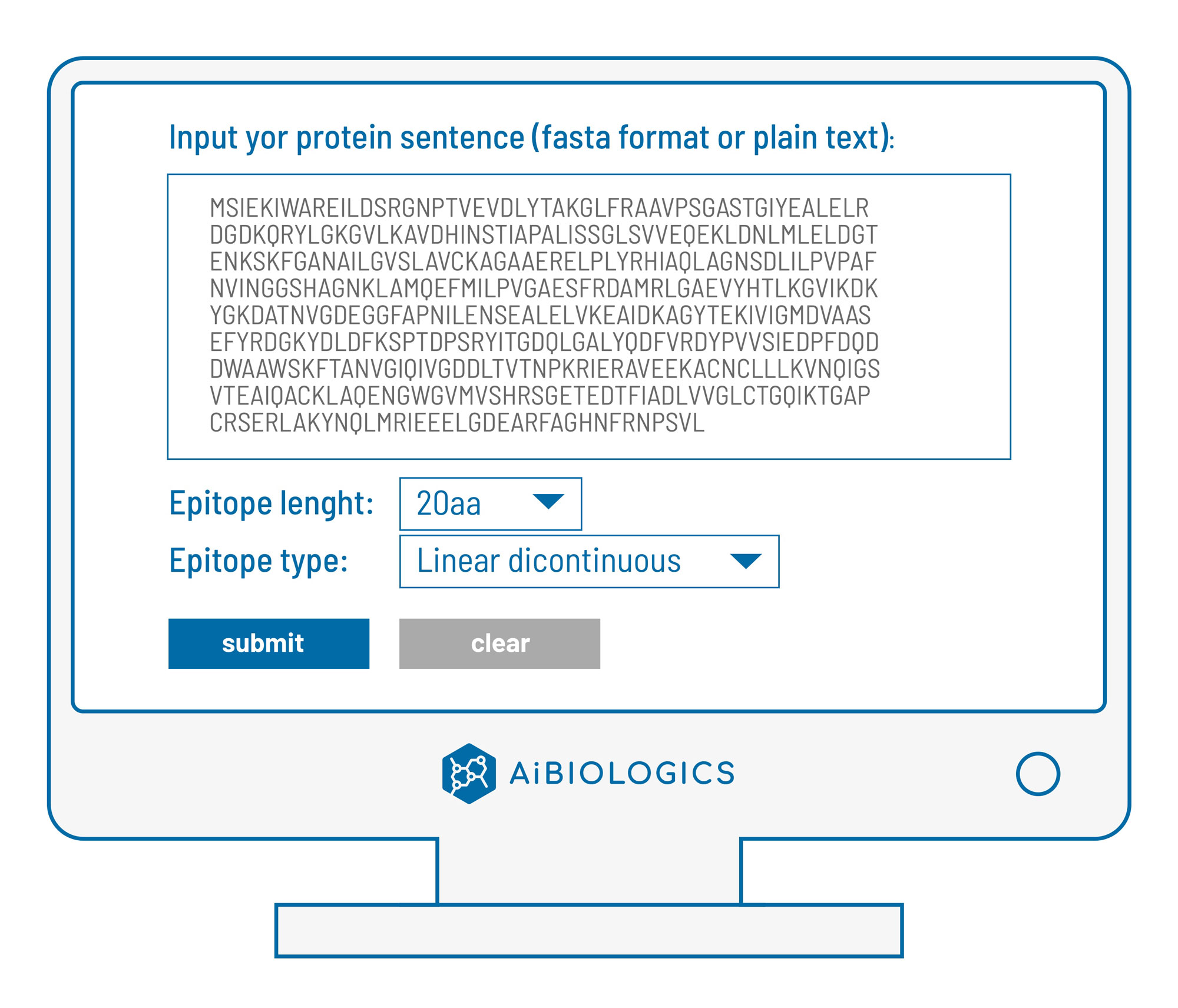
Additional Application:
EpitopePredikt can be used as a tool to predict linear and discontinuous epitopes
A key step in raising antibodies using the peptide-approach is to ensure selected peptides are immunogenic.
EpitopePredikt will predict immunogenic peptides on the target protein greatly increasing the success rates of generating antibodies.
EpitopePredikt – Ongoing projects
AI model to predict IgE epitopes
IgE is associated with allergic reactions and certain infectious agents.
Predicting IgE epitopes has the following benefits:
• Potential diagnostic as IgE levels significantly upregulated following allergic reactions.
• Software can recognise IgE-associated epitopes in new vaccines to evaluate biosaftey.
AI model to predict IgA epitopes
IgA is the main immunoglobulin found in mucous secretions, including tears, saliva, sweat, colostrum and secretions from the genitourinary tract & respiratory epithelium.
Predicting IgA epitopes has the following benefits:
• Diagnostic application using saliva and tears.
• Identifying IgA-inducing epitopes can pave the way of the development of oral-based vaccines.
AI model to predict IgM epitopes
IgM is associated with blood & mucosal surfaces.
Identifying IgM epitopes will facilitate detection of active infection or early onset of disease. IgM based epitopes could facilitate rapid saliva-based testing.
EpitopePredikt – Future projects
EpitopePredikt (mammals) veterinary species
Each species has different repertoire of antibody isotypes.
It is essential to understand and chart differences in order to develop more effective diagnostic assays and vaccines.
EpitopePredikt avian species
Avian antibody diversity is limited to IgM, IgY, and IgA, with the additional peculiarity of a truncated IgY(ΔFc) in ducks.
IgM & IgY are systemic whilst IgA is mucosal.
EptiopePredikt fish species
Fish have two prominent antibody isotypes; systemic IgM and mucosal IgT.
Current vaccines are IgM-biased (require IP injections).
Future vaccines are shifting to oral and immersion vaccines so more IgT dominant epitopes require identification.

